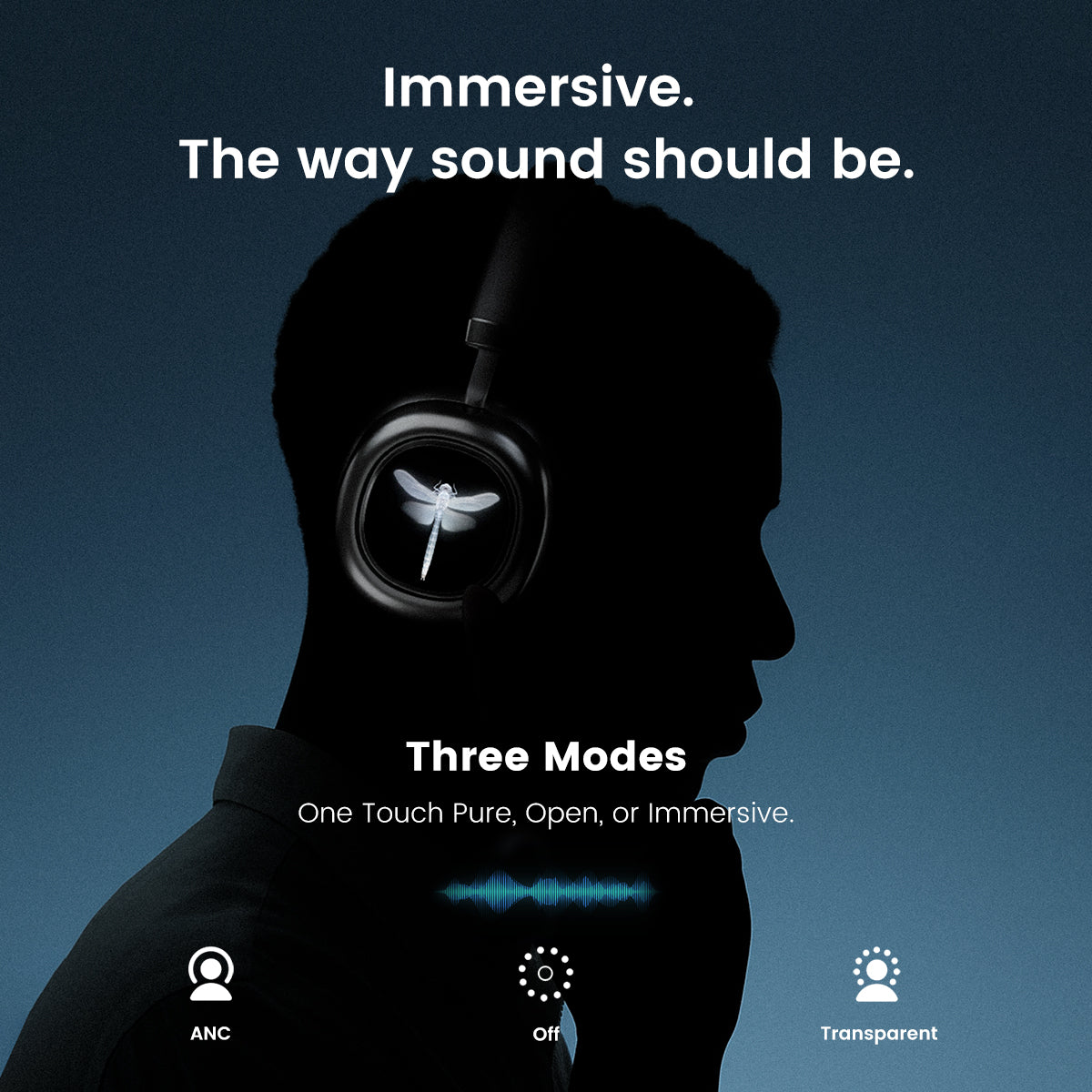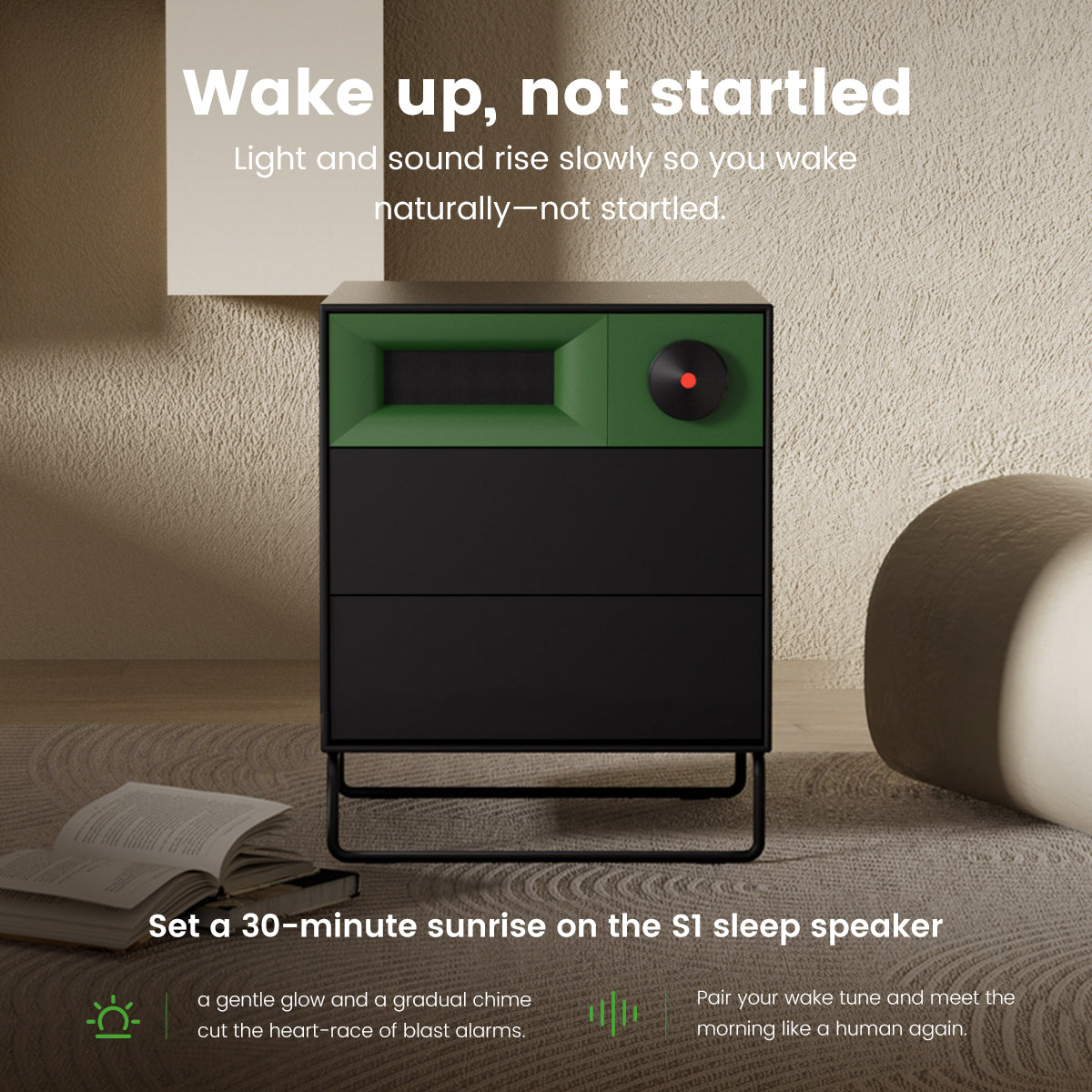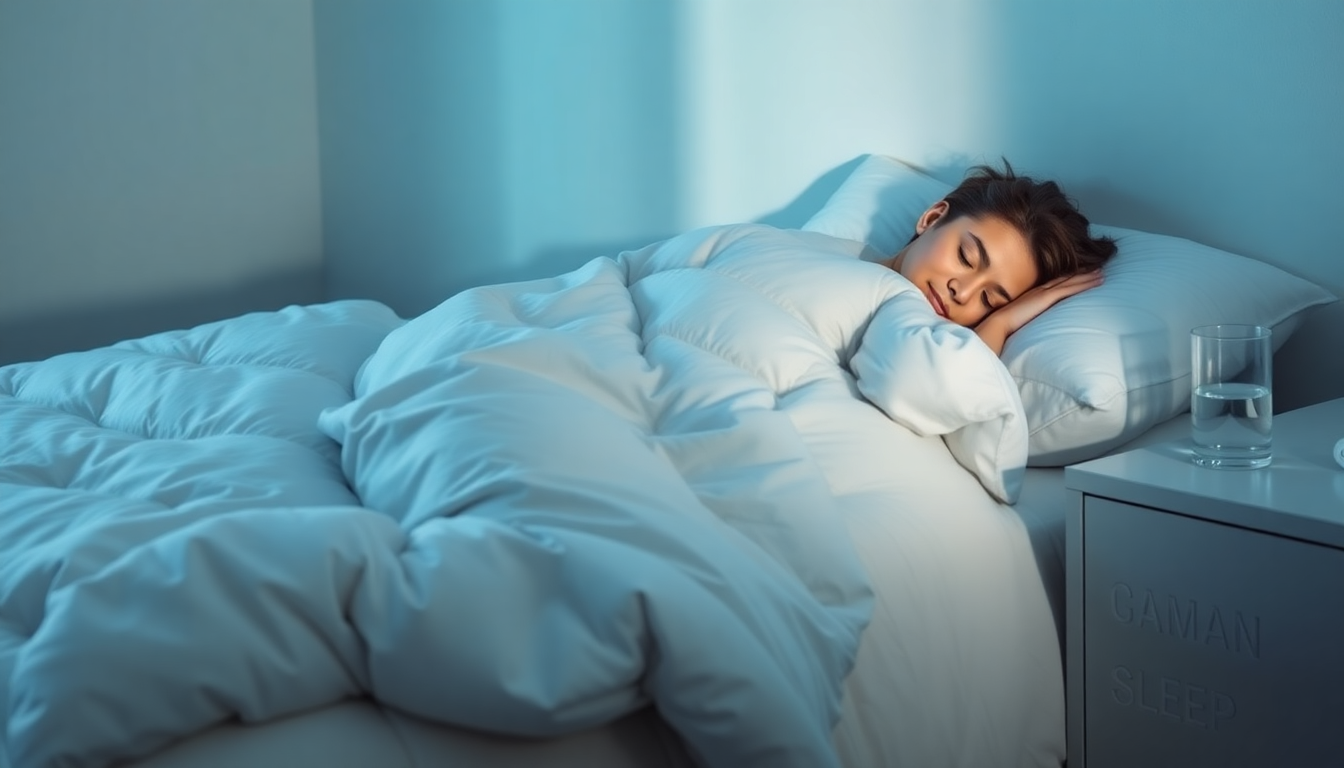If you've ever woken up feeling unrefreshed despite "sleeping enough," you may have missed out on the most restorative phase: deep sleep. In this article, you'll learn how to get more deep sleep through evidence-based habits, and how your Smart Sleep Nightstand Speaker can support that goal.
Why Deep Sleep Matters
Deep sleep is when your brain and body do their heavy repair work: clearing waste, consolidating memory, supporting immune function. As we age, the proportion of deep sleep tends to decline, making it more important to optimize conditions for it.
1. Maintain a Consistent Sleep Schedule
One of the strongest predictors of getting more deep sleep is going to bed and waking up at the same time daily. A stable schedule helps your circadian rhythm regulate deep sleep cycles.
2. Optimize Your Sleep Environment
To improve how to get more deep sleep, your bedroom needs to support uninterrupted cycles:
- Keep the room cool, dark, and quiet — even slight light or sound intrusions can interrupt deep sleep transitions. Use blackout curtains, sound insulation, or gentle masking approaches.
- Use a device that provides consistent noise masking, which can help prevent sudden sounds from jolting you out of deep sleep.
3. Use Gentle Sound or Noise Masking
When exploring how to get more deep sleep, research suggests that ambient sound or masking can reduce disturbances. Consistent, low-level sound (white noise or pink noise) can fill in silent gaps and help prevent arousals that interrupt deep sleep phases. This is where your Smart Sleep Nightstand Speaker becomes useful:
- It includes built-in soothing audio options (white noise, ambient soundscapes) to gently mask disruptions without being intrusive.
- You can choose a stable sound level that won't itself disturb your deep sleep.
- Because the light does not auto-change, you avoid sudden illumination that can interfere with deep sleep.
4. Wind Down with Relaxation Techniques
Relaxation before bed helps signal to your body it's time for deeper rest. Techniques like 4-7-8 breathing, progressive muscle relaxation, or visualization help slow your autonomic nervous system. Practices like Yoga Nidra or guided relaxation have been shown to promote tranquility and may improve sleep transitions.
5. Time Your Exercise Wisely
Regular physical activity is linked to better sleep and deeper sleep cycles, but timing matters. Aim to finish vigorous exercise at least 3–4 hours before bedtime, so your body has time to cool down. Gentle moves, like a brief evening walk, can help—but avoid strenuous workouts too close to sleep.
6. Limit Stimulants & Heavy Meals Late in the Day
To improve how to get more deep sleep, avoid caffeine, nicotine, and alcohol in the latter part of the day, as they fragment sleep stages. Also steer clear of very heavy or spicy dinners close to bedtime, which can disturb digestion and interrupt deep sleep.
7. Use Your Smart Sleep Nightstand Speaker Intentionally
Here’s how to integrate your nightstand speaker into your deep sleep strategy:
-
Start the soothing audio early—30 minutes before sleep—to help smooth your transition into deep sleep, rather than waiting until you're half asleep.
-
Use the drawer to keep small items like sleep masks, earplugs, or glasses, so everything you need is close by without disrupting your sleep environment.
-
Choose a soft, warm light color to help your brain's transition into deeper stages without bright stimuli.
-
Place your phone in the designated wireless charging spot to minimize device distractions or late-night light exposure.
Putting It Together: A Nighttime Routine to Maximize Deep Sleep
Final Thoughts
Learning how to get more deep sleep is about creating the right conditions—consistent timing, calm mind, stable environment, and gentle tools. The Smart Sleep Nightstand Speaker can help you enforce those conditions with purposeful sound, manual lighting, and a tidy bedside. Over time, these practices can lead to deeper recovery, better energy, and a healthier sleep foundation.









Leave a comment
All comments are moderated before being published.
This site is protected by hCaptcha and the hCaptcha Privacy Policy and Terms of Service apply.